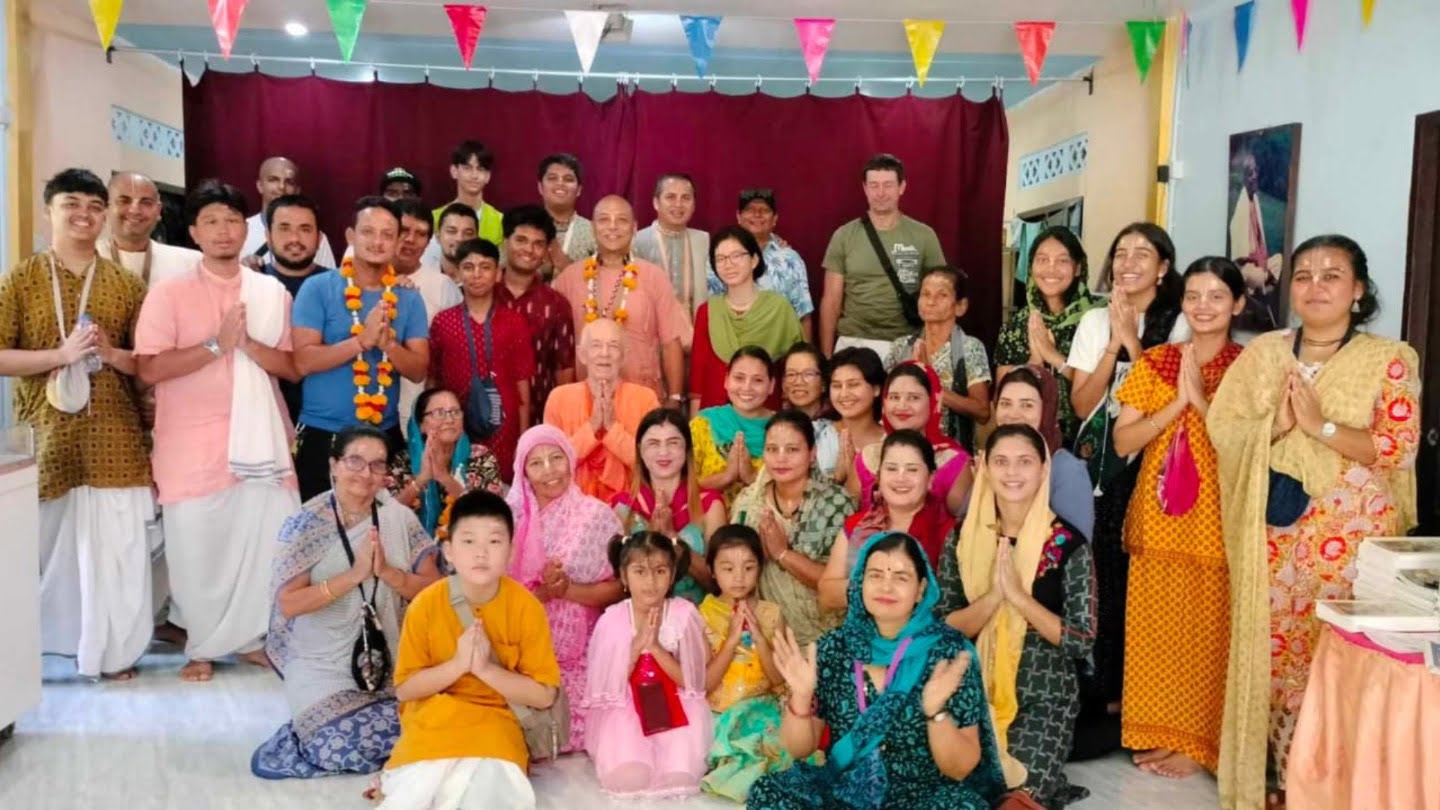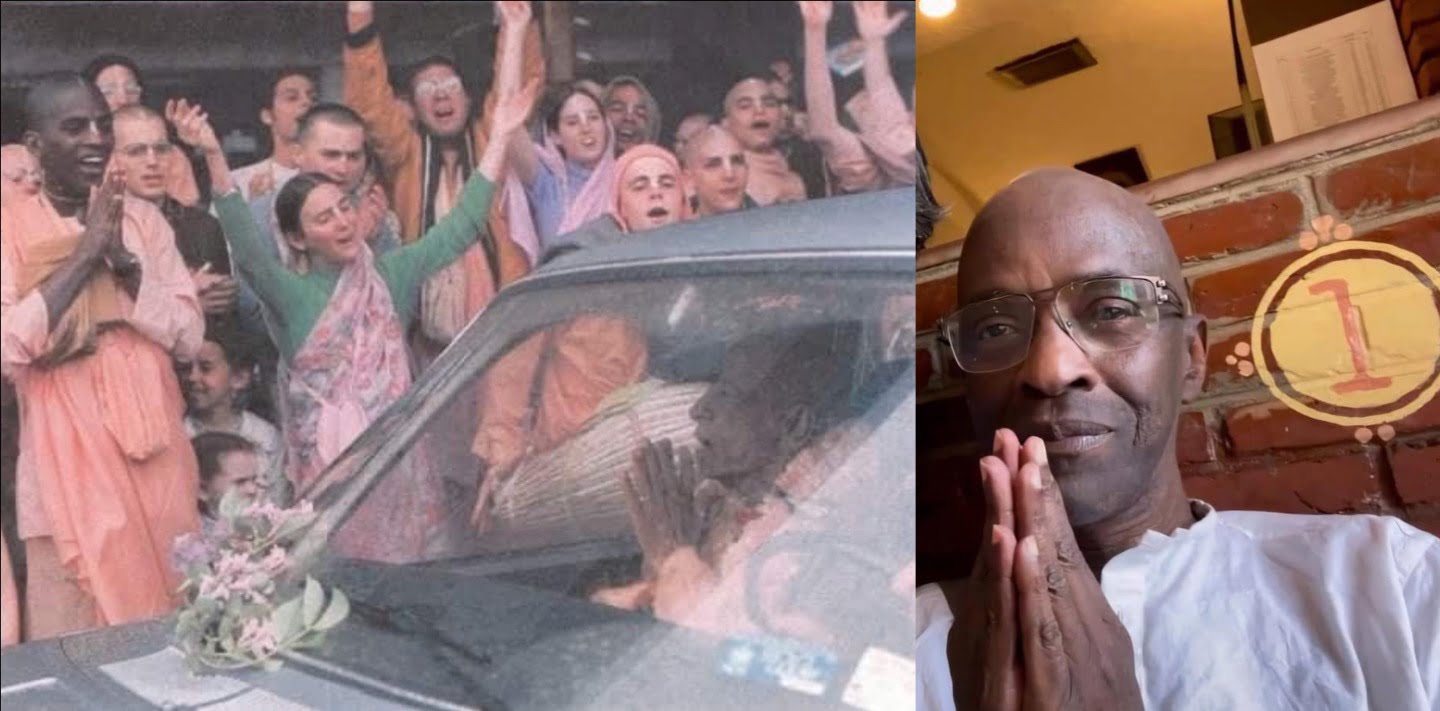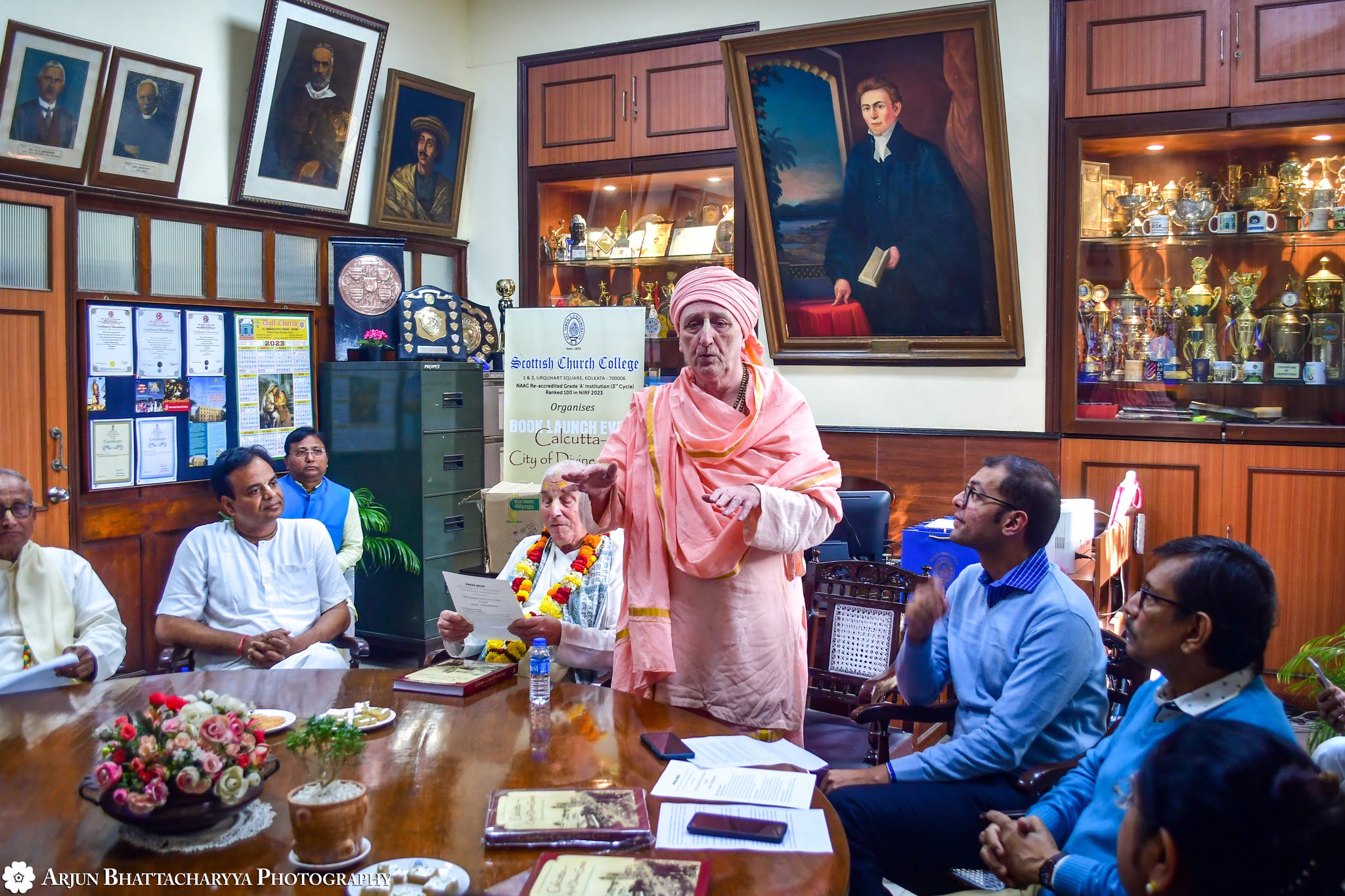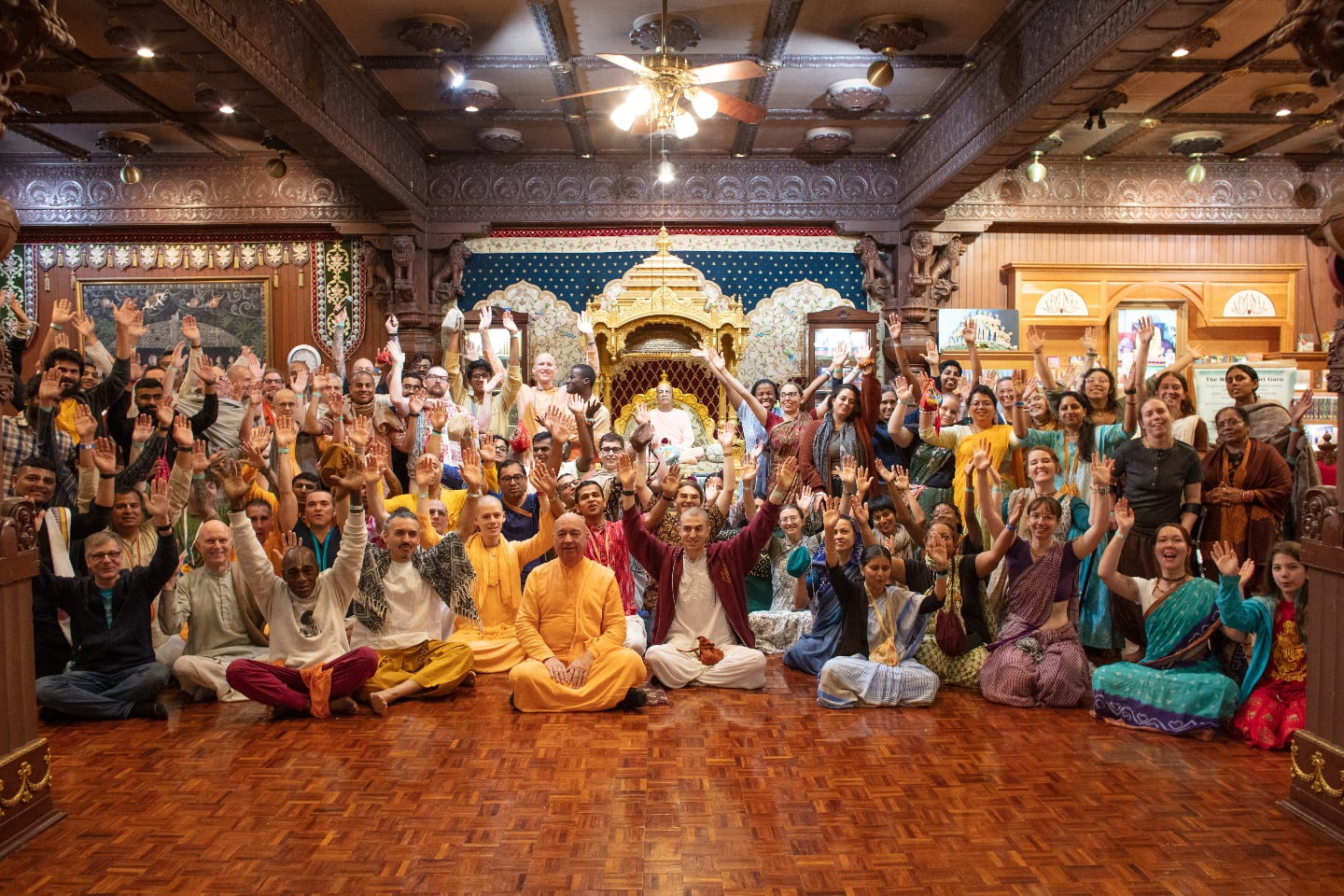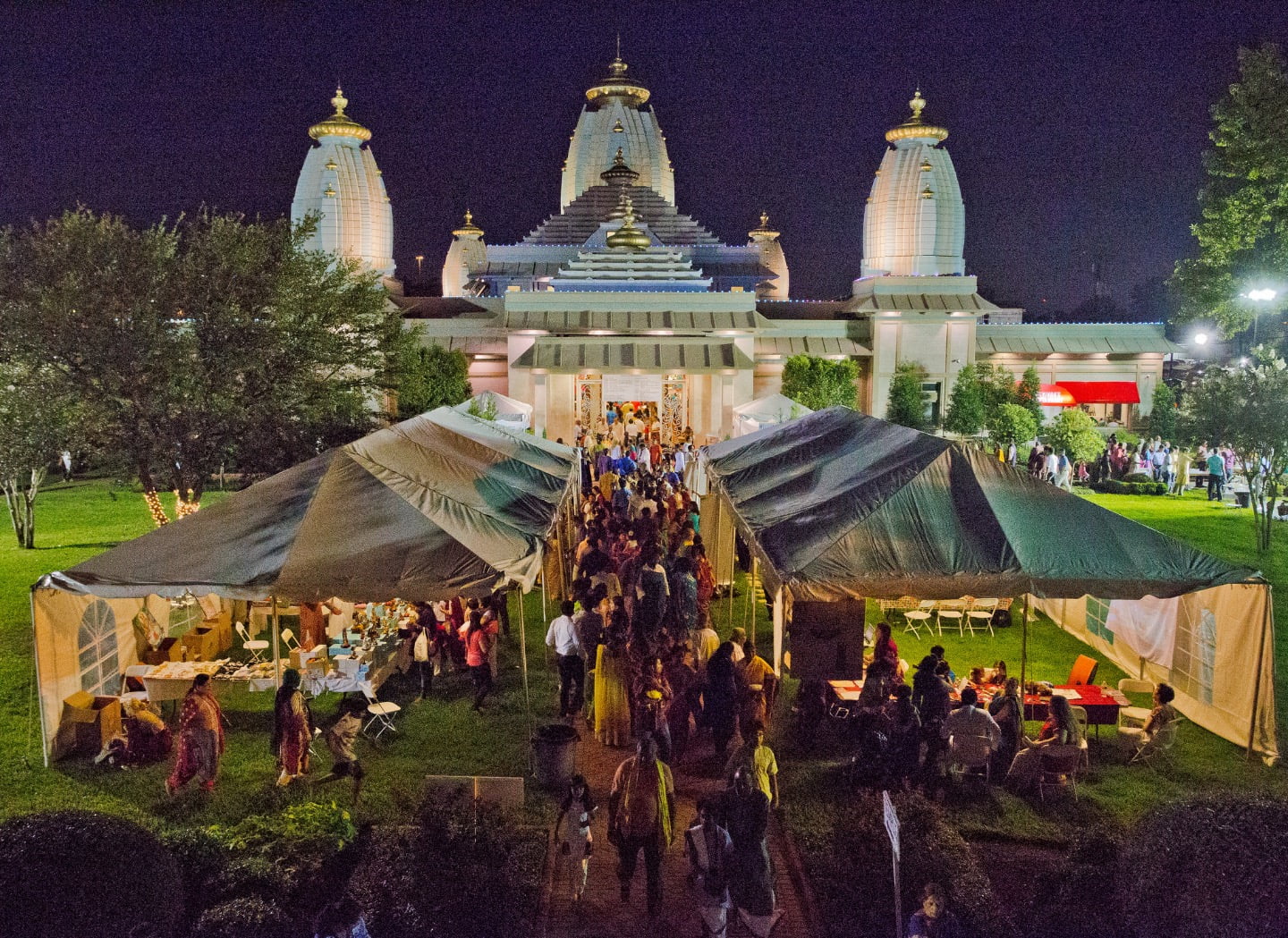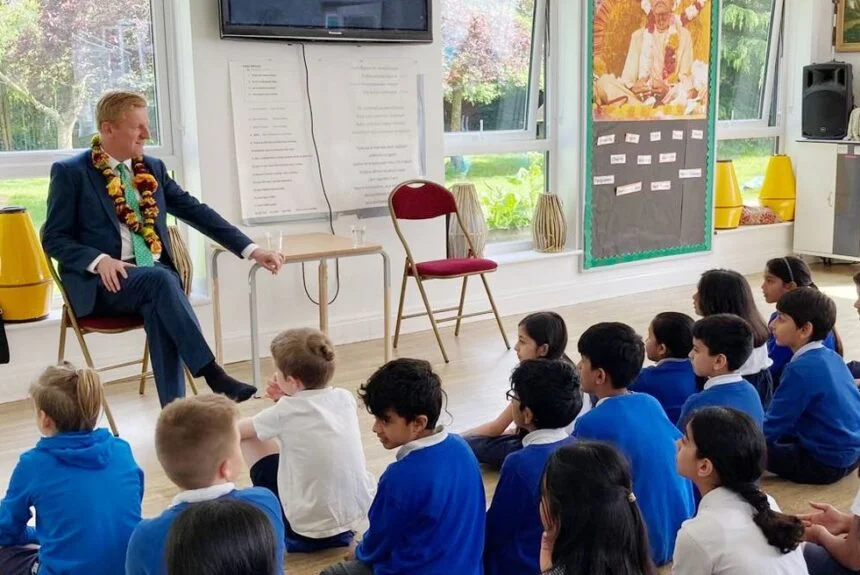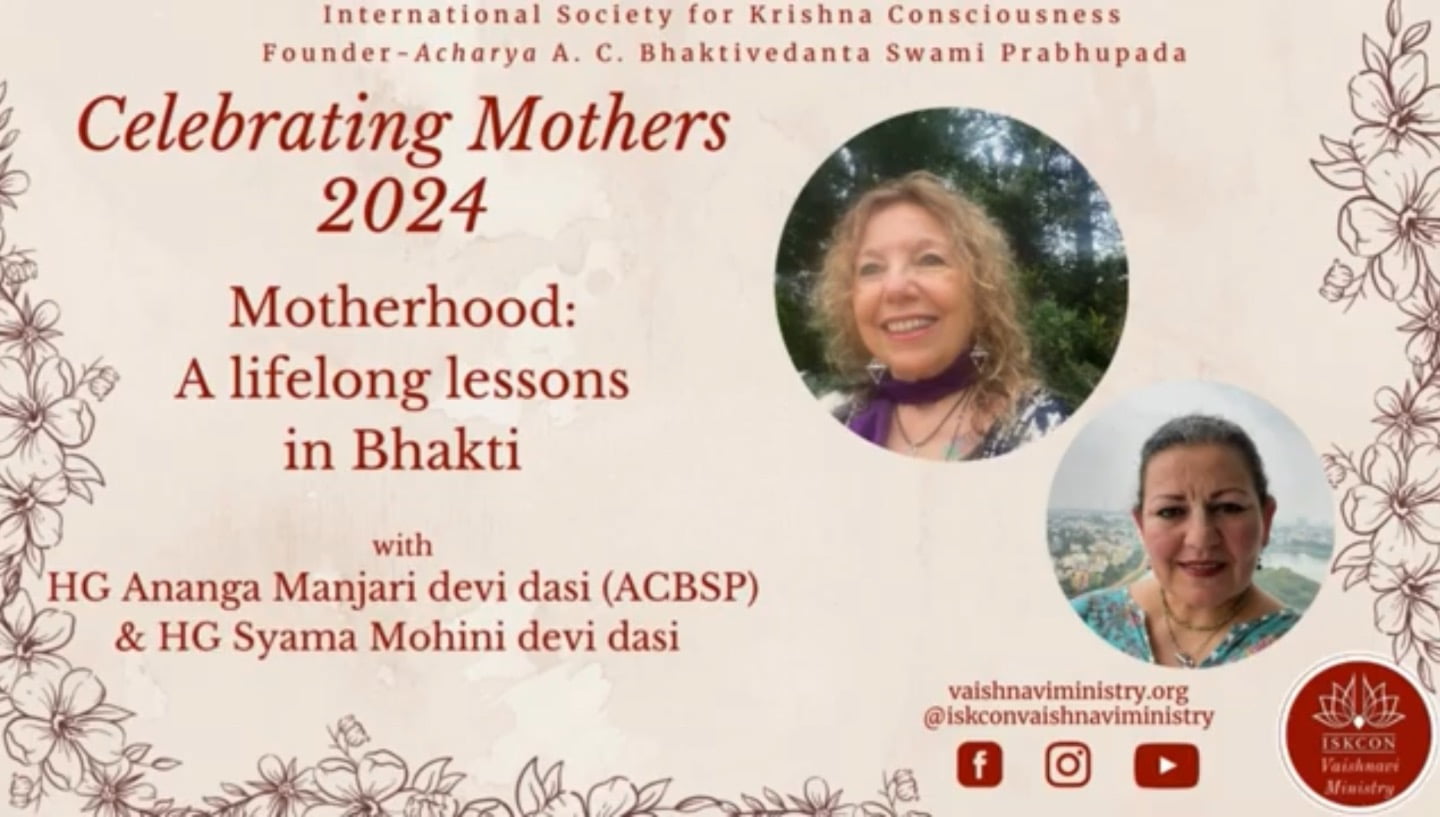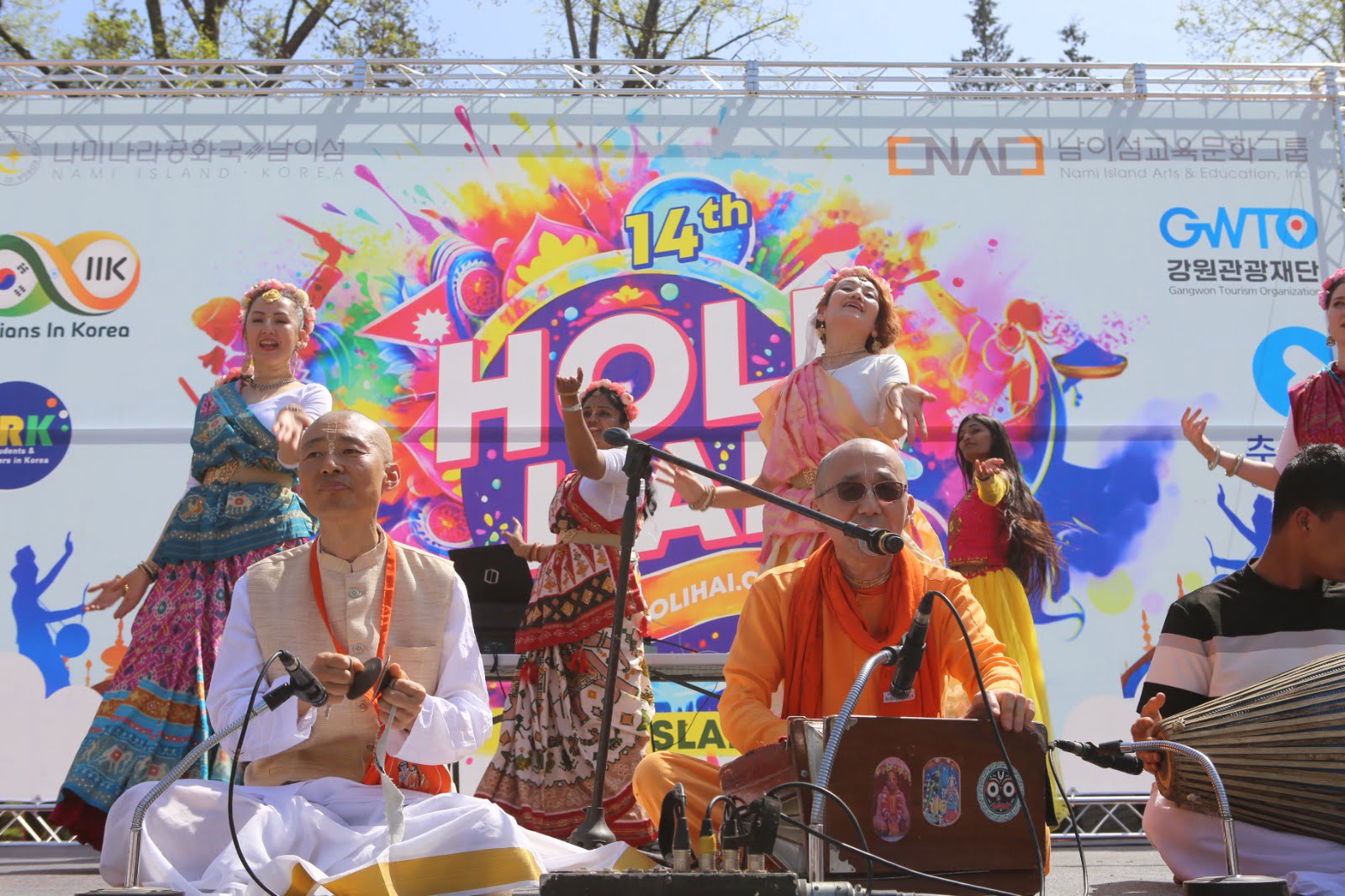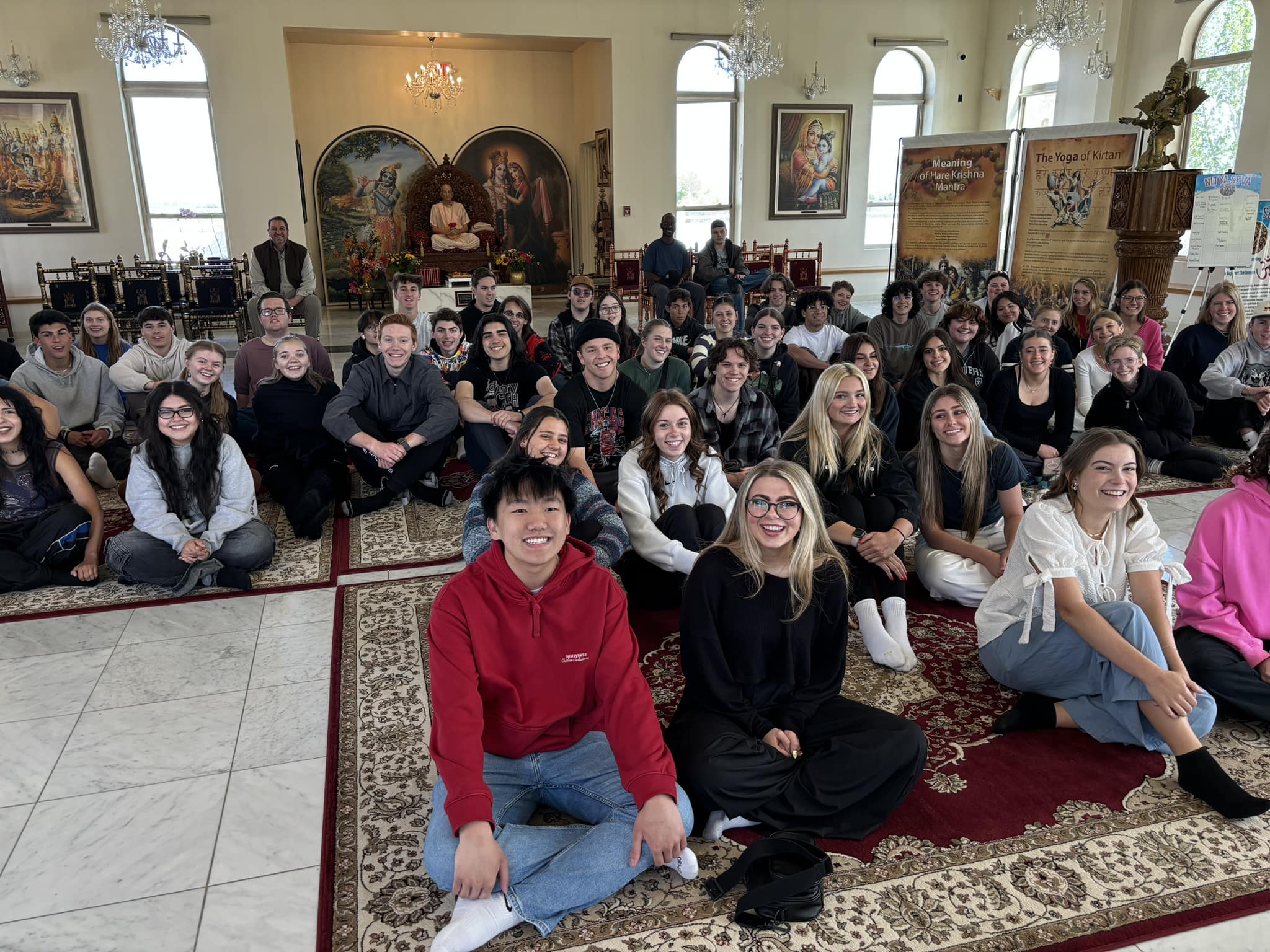Aja Govinda Dasa: Serving the Supreme Scientist
By Madhava Smullen | Mar 20, 2011
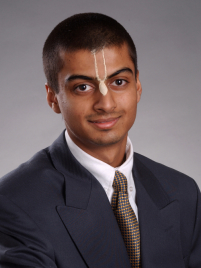
Aja Govinda Dasa—then Ayush—was only six years old when his family moved from Uttarakhand in India to Boise, Idaho in the 1990s so that his father could pursue a PhD at the University there.
The family—Aja Govinda, his father Srihari Dasa, mother Shyamasakhi Dasi, and sister Shatakshi—began to visit the Boise ISKCON temple, and became friends with the temple president Anantarupa Dasa, his wife Aruddha Dasi, and his sons Radhika Ramana and Gopala Hari.
“They were preteens at the time, and I was just a kid, “ Aja Govinda says now, speaking of his childhood friends who, like him were destined to become devotee scholars. “My fondest memory is eating potato pakoras with tamarind chutney at the Govinda’s restaurant in downtown Boise, run by Aruddha Mataji. We met a lot of people who were interested in Krishna consciousness there, including local Sanskrit scholar Gary Thomas, who later taught Sanskrit to all of us kids at the temple.”
Aruddha Dasi, who had devised her own ingenious homeschooling program based upon Srila Prabhupada’s books, inspired several other devotee families to home-school their children. Aja Govinda’s parents followed suit.
“I would read a page a day from Hindi and English translations of Prabhupada’s Bhagavad-gita As It Is, mark the words I didn’t know and learn their meanings,” he recalls. “My mother would give me essay questions from a little booklet by ISKCON’s Bhakti-Sastri scriptural study course. I can’t think of a more spiritual way to teach kids spelling, vocabulary, reading, writing, and comprehension.”
In his free time, Aja Govinda would perform in plays and skits for the many local festivals and programs the temple put on. Later, he joined the Vedic Philosophical and Cultural Society (VPACS) student club at Boise State University, which Radhika Ramana had started when he enrolled in the school at age twelve.
Aja Govinda remembers playing the saint Narada Muni in a performance of ‘The Advent of Lord Krishna’ to a packed-out auditorium, alongside Radhika Ramana as Krishna’s father Vasudeva, and Gopala Hari as the evil King Kamsa.
“Altogether, there were probably over fifteen actors in that play, all from our devotee congregation,” he says. “The dramas are probably what I miss most from my childhood at the Boise temple, but I remember everything very fondly. I can never repay my debt to my parents and the Boise temple devotees for giving us kids what many often lack—lifelong friends and ideals, higher tastes and experiences, and positive alternatives to drugs, guns, and sexual promiscuity.”
After homeschooling, Aja Govinda started taking part-time courses in math and English at Boise State University to prepare for his SAT exam.
“Initially, the admissions officer was skeptical about admitting a twelve-year-old to college—if I were him, I would be too,” he says. “But Radhika Ramana and Gopal-Hari were my seniors at BSU, and they were proof that a preteen could not only survive but excel in college. So he considered my case carefully, and was convinced by my good scores in the SAT and college prep exam, and my extra-curricular activities at the Boise temple.”
Aja Govinda initially studied biology—since childhood, he had always been fascinated by the ingenuity of nature; had always searched for the answers to questions like “How do roses grow out of a seed?” or “How are my heart and lungs beating and breathing without my thought?” But due to his interest in math, and because it allowed him to apply for and win scholarships by local tech firms, he changed majors to Electrical Engineering.
During his studies, at age fifteen, Aja Govinda enrolled in the three-month Bhakti-Shastri course at ISKCON Philadelphia, attending classes by ISKCON guru Ravindra Svarupa Dasa and his erudite disciples Vrindavan Das Thakur Dasa and Dwijamani Dasa.
“That was the best summer ever,” Aja Govinda recalls. “The prasadam was delicious, the friendships deep, and at programs with Radhanath Swami, I learned the joy of kirtan for the first time. But best of all was the learning: Venkata Bhatta Prabhu’s notes to me in his Sri Isopanisad class were the most eloquent and succinct I have ever come across; Vrindavan Prabhu’s Upadesamrita and Bhakti-Rasamrita-Sindhu classes were imbued with nectar; and Dvijamani Prabhu’s Bhagavad-gita class transported us back in time to the era of the world’s greatest Sanskrit scholars such as Madhvacarya, Ramanujacarya, Sridhara Swami, and Baladeva Vidyabhushan.”
“I can’t remember any time of my life that was as ‘blissed-out’ as those three months at Bhakti-Shastri,” he continues. “It was the only time I was fully absorbed in Prabhupada’s books—and from that experience, I can personally vouch that whoever reads Prabhupada’s books will experience one of the six characteristics of bhakti—freedom from misery.”
Upon returning to Boise, Aja Govinda took initiation from Hanumatpresaka Swami, a scholar who worked with the late Bhakti Svarup Damodar Swami at Srila Prabhupada’s Bhaktivedanta Institute. It was his guru who inspired Aja Govinda to study science and to engage in scientific outreach programs with the Institute.
“Since I was studying science in my undergraduate degree, I always had doubts about whether to accept the modern scientific understanding or the Bhagavata school of thought,” he says. “But in Maharaja’s presence, they all disappeared.”
One of the most basic points Hanumatpresaka Swami taught Aja Govinda was that modern science is a bottom-up approach, while the Srimad-Bhagavatam takes a top-down approach. Thus for scientists matter is the most real (sat) and God is the most unreal (asat), but for the Bhagavata philosophers God is the most real and matter is the most unreal.
Alongside his spiritual studies, Aja Govinda continued his Bachelor’s Degree, and graduated summa cum laude at age seventeen. He was recognized as one of the Top Ten Scholars of 2005 at Boise State University and received an Honorable Mention by the Eta Kappa Nu Honor Society.
After graduating, he applied to several graduate programs, and won a fully-funded stipendiary Clarendon Scholarship at the University of Oxford to pursue a Masters / PhD in Computational Biology.
There, Shaunaka Rishi Dasa, director of the Oxford Centre for Hindu Studies, and “the Oxford sanga” welcomed him as their own. This vibrant community of devotee scholars organized seminars, courses, publications, and outreach to promote scholarly study of Vaishnavism and Hinduism in academia.
Aja Govinda uses honest and strong words to describe what their association taught him. “When I arrived in Oxford, I was an arrogant fool,” he says. “But now in their association, I realize that real education instills modesty. Back home I used to feel so proud of myself for being ‘the topper,’ but when I came to Oxford, I was just one in the crowd because everyone is a genius here. That was a lesson in humility for me, and I am glad Krishna gave it to me.”
At Oxford, Aja Govinda’s research involves the mathematical modeling of the functions of the heart—arguably the most complex organ on which the whole body depends for blood supply. While working, he likes to think of the heart as the most essential biological machine arranged by the agencies of the “Supreme Scientist,” a term coined by Bhakti-svarupa Damodara Maharaj to refer to the Absolute Truth Sri Krsna in The Scientific Basis of Krsna Consciousness.
“I am fascinated by biology,” he says. “For me it is the study of God’s creation, or, as Isaac Newton saw it, the second book of God after the Bible. My academic study of biology and the sciences has allowed me to scientifically critique the theory of evolution and understand the description of the Lord’s creation mentioned in the Srimad Bhagavatam. It has not only helped me study the origins of life and the universe, physics versus metaphysics, mind versus matter, and psyche versus body, but also facilitated me to academically communicate the Srimad Bhagavatam’s core methodology, epistemology, and ontology to scientists.”
Aja Govinda has also used his knowledge to collaborate with other ISKCON scholars and authors such as Isvara Krishna Dasa, Lalitanatha Dasa, Drutakarma Dasa, Caitanya Carana Dasa, and Urmila Dasi to write articles for Back to Godhead magazine on evolution and artificial life. In addition, he has authored papers for the Bhaktivedanta Institute’s Science and Spiritual Quest conferences, which feature speeches by Nobel laureates and eminent scientists from around the world.
Recently, Aja Govinda read Nature’s IQ—an award-winning book by Hungarian ISKCON devotees Isvara Krishna Dasa and Bhagavat-Priya Dasa on the topic of animal instincts that defy the theory of evolution—and was inspired to become involved in the documentary film version, directed by Krishna-lila Dasi of Karuna Productions.
Flying to Hungary, he shot several scenes for the film at Krishna-Valley, a beautiful and serene ISKCON farm community in the Hungarian countryside. With the film now wrapped and expected sometime in late spring, Aja Govinda hopes to continue collaborating with Isvara Krishna and Krishna-lila to present Srila Prabhupada’s philosophy scientifically to the world.
“My aspiration is to follow in the great footsteps of Bhakti-Svarupa Damodara Swami and use my scientific education in glorifying the Supreme Lord and bringing the intellectually-minded closer to Him,” he says. “My guru, Hanumatpresaka Swami, said that we can change scientists’ paradigms from an atheistic reductionistic perspective to a perspective in which they see a higher order or force at work, described in the scriptures as Brahman realization. From there, they can move on to understand how that higher force is present and active locally and cosmically—Paramatma realization.”
After his graduate education in science, Aja Govinda would like to dedicate himself to Srila Prabhupada’s movement in academic and science outreach.
“As of now, I am not sure what Krishna has planned for me,” he says. “But whichever position He puts me in, whether as a professor, author, speaker, presenter, or lecturer, I hope to simply repeat what Prabhupada and the previous acharyas have given us, and ‘translate’ it into scientific jargon for the benefit of the intellectually-minded. Srila Prabhupada and the past acharyas have given us such a legacy that we need no research, nothing ‘new.’ We simply need to present their teachings through different media for different audiences.”





